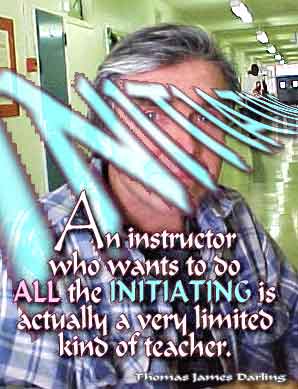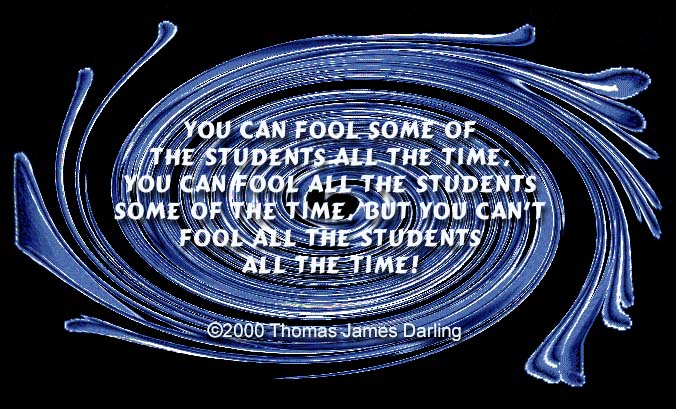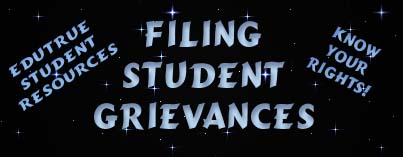SCHOOL POLICY AND PRACTICE AS IT
AFFECTS THE STUDENT UNDERCLASS
By Thomas James Darling

These pages were updated 9 Jan 2014.
The issues I document are not really "dated" or "old school" in that they chronicle the kinds of campus struggles that can and do still
happen today and will likely continue in the future. The technology has changed faster than the attitudes and
mentality behind our education programs, policies, and practices.
Policy and practice may not coincide. Policies may be unwritten and NOT formally approved. Policies may be understood and implemented differently from campus to campus according to changing priorities about which the student body remains uninformed. As personnel is shuffled and people retire or move away, and their replacements arrive with perhaps very different backgrounds, abilities, and predispositions, any predictability with regard to how a student's concerns might be addressed drops even lower. Add to this the obvious — and not-so-obvious — internal pecking orders, jealousies, power struggles, political maneuvering, self-preoccupations, paycheck-centeredness, and assorted neuroses and eccentricities, and the student may become even more tentative about having his or her concerns addressed.


In my case, I came with high expectations, great enthusiasm, leadership ability, and an innovative spirit ready to catch up with the new wave of information technology. Now, over two years later, I am a weary, dispirited, and doubting that I will witness true shared governance, and mission adherence any time soon. Where I attend, I am continually reminded that education is in a deepening crisis because not everybody comes to campus to learn.


If your school does not have a well-publicized and crystal clear routing process for the handling of students' complaints, ongoing concerns, and grievances — consider this a signal that students are considered an underclass, and what happens to an underclass off campus is just as likely to occur on campus.
There are certain categories of complaint that get immediate attention such as felonies, sexual harassment, racial discrimination, etc. While there is zero tolerance for drug and alcohol possession — there is infinite tolerance of ineptitude and lack of innovative leadership — provided that such inept administrators are sufficiently supportive of the people holding managerial power and don't provide a target for bad publicity or a lawsuit.

Presumed policy may be based on one person's view or interpretation of past practice, precedent, or implies sanctions that may or may not reflect widespread agreement or alignment with more established or overarching policy directives. The SDCCD mission statement, and code 3100 have not been revised to reflect best practice and innovative developments that affect various areas of district administration differently. A recent letter to the SDCCD Chancellor about updating such documents was met with no response. Perhaps this will give students some fair warning that their feelings may not be spared and the hours of futility may be long unless they are pursuing a red flag issue that could get someone fired if not addressed. Sometimes teachers and staff may suffer the same — but often they become caught up as active or passive accomplices in perpetuating the unresolved difficulties of the student underclass within public schools — and often private schools as well.

THE VICTIM HAS A FAR LONGER MEMORY
THAN THE PERPETRATOR.



Copyright ©1999-2014 by Thomas James Darling








